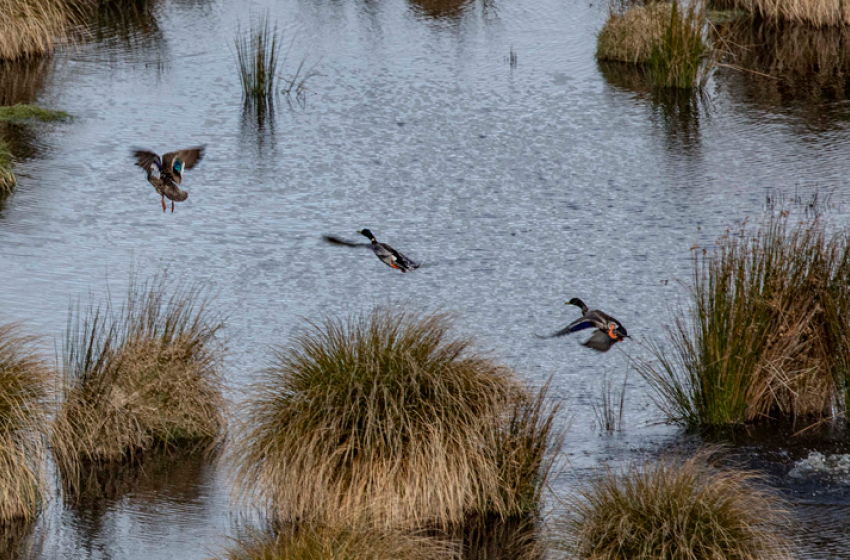Call to Halt Decline of Wetlands Ahead of World Wetlands Day
- 31/01/2023

New Zealanders are being encouraged to consider creating and preserving wetlands to help halt the decline of these threatened habitats across the country.
Just nine per cent of the country’s original wetlands remain, and Fish & Game is urging landowners to recognise the value of wetlands ahead of World Wetlands Day this Thursday (February 2).
“Wetlands are one of our most threatened habitats,” says Corina Jordan, chief executive of Fish & Game NZ.

Corina Jordan, Fish & Game NZ Chief Executive
“We have lost most of our small wetlands. This has a significant environmental impact because they provide a buffering function for waterways by trapping sediment and filtering nutrient run-off, and they have an important role in flood management by slowing pulses of water flow.
“What’s more, wetlands play a role in mitigating climate change by absorbing carbon dioxide and filtering greenhouse gases, and they are essential habitat for both indigenous plants and animals as well as our valued introduced species.
“Southland is an interesting case study. The Environment Court recently found that their rivers have degraded water quality. A forum commissioned by Environment Southland concluded the most cost-effective way to improve that was to develop five per cent of modified land into wetlands. The greatest potential water quality benefits are associated with on-farm wetland construction.”
Jordan agrees there are huge opportunities on private land to create, enhance or develop more wetlands and help halt the decline of these vital ecosystems.
“We know farmers have a deep affinity for the land and recognise the potential the ‘swampy bottom paddock’ may have as a wetland, although many may still be unsure how to go about restoring and enhancing it.
“Anyone interested in creating wetlands should contact Fish & Game. We have the expertise and personnel and can provide free advice; we can also direct people to funding support for wetlands projects.”
Over the past 30 years, Fish & Game has been the lead agency in New Zealand when it comes to wetland conservation.
“Not only have we been the strongest advocates for better protection of wetlands in legislation, but Fish & Game has helped farmers with hundreds of wetland projects across the country.”
Through the purchase of their game bird licence from Fish & Game, hunters also play a significant part in wetland conservation, Jordan points out.
"Five dollars from every licence sold goes to the Game Bird Habitat Trust. Since 1993, the Trust has raised and disbursed $2.3 million on wetland habitat projects, resulting in an annual average of 31ha of restored wetlands every year.”
However, Jordan says all New Zealanders must take greater responsibility.
“Up until recently, the value of wetlands has not been recognised. They were perceived to be unproductive parts of our landscape that were drained and cleared.
“We want the Government and regional councils to look again at their wetland policies, many of which are getting in the way of landowners wanting to do more to establish, manage and even maintain existing wetlands.”